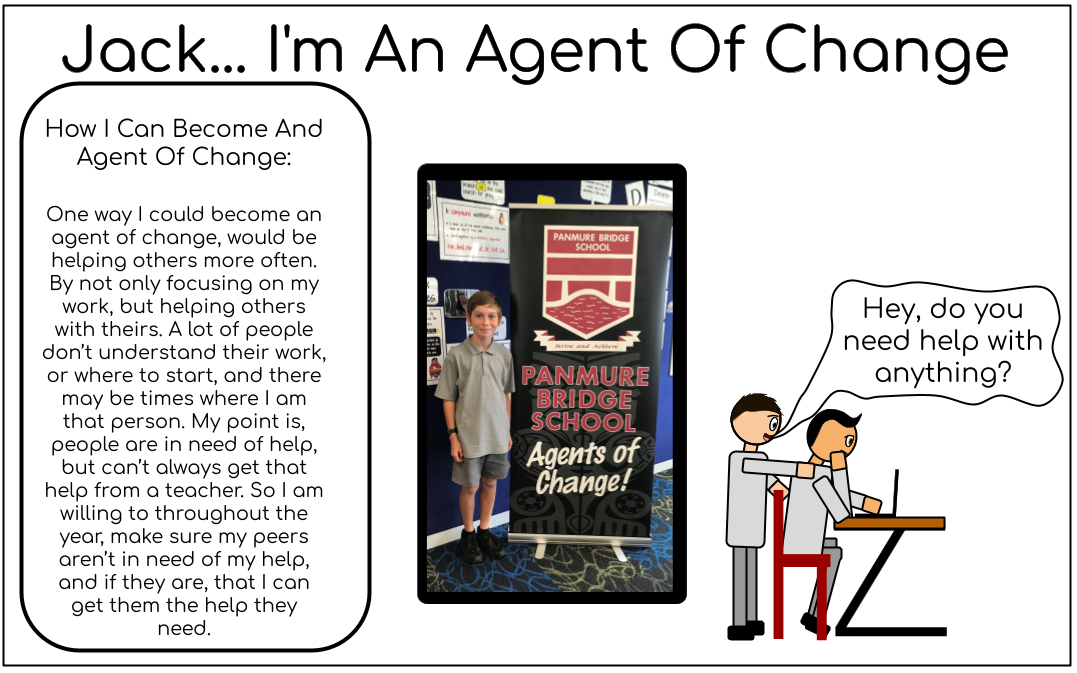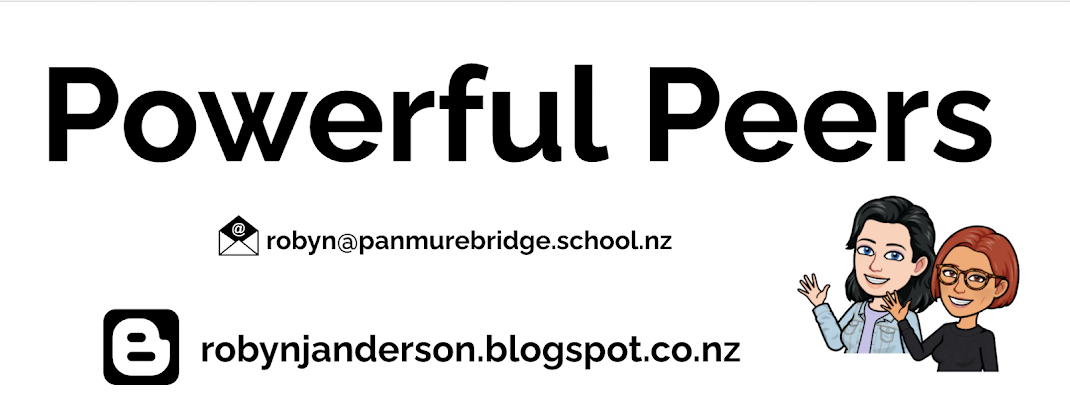During our first CoL meeting this year Dr Jannie Van Hees reminded us of the rich language opportunities available to us in our local area. Our own school seemed like the perfect place to start building my learner's vocabulary kete. After unpacking our school whakatauki by looking at the history and purpose behind these words I introduced combination of think-pair-share and small group discussions to allow my learners to use the language in an authentic context. Working with a buddy to search for other whakatauki and the meaning behind them, resulted in connections and comparisons being made. 'Manaaki whenua, Manaaki tangata, Haere whakamua' are no longer simply words we see and can say. 'Care for the land, Care for the people, Go forward' are all words that each of my learners understand and have formed their own connections to. We captured this learning by creating DLOs to reflect our understanding and grow our print rich learning environment. Jeremiah is happy for me to share his example. Jeremiah's blog

Following on from this we looked at a phrase commonly used at our school, 'Agents of Change'. I know that I have personally unpacked this phrase each year with my learners as it is a powerful way for them to grow their leadership. This year we looked at how we could become 'Agents of Change' in our own 2018 learning journeys. This was goal setting wrapped up in the language around us. It provided an authentic purpose for my learners to strengthen their connections to these words by using them in a personalised context. Jack is happy for me to share his example. Jack's blog

We took this a step further by bringing the language, personal to our school, into our assembly time. I have been working with our student leaders when they write their assembly scripts, so together we have begun to weave our PBS language into their weekly reports. After all we learn best when we learn with and from each other, and who better to grow this learning and sense of ownership than our own student role models.
Following on from this we looked at a phrase commonly used at our school, 'Agents of Change'. I know that I have personally unpacked this phrase each year with my learners as it is a powerful way for them to grow their leadership. This year we looked at how we could become 'Agents of Change' in our own 2018 learning journeys. This was goal setting wrapped up in the language around us. It provided an authentic purpose for my learners to strengthen their connections to these words by using them in a personalised context. Jack is happy for me to share his example. Jack's blog
We took this a step further by bringing the language, personal to our school, into our assembly time. I have been working with our student leaders when they write their assembly scripts, so together we have begun to weave our PBS language into their weekly reports. After all we learn best when we learn with and from each other, and who better to grow this learning and sense of ownership than our own student role models.

No comments:
Post a Comment